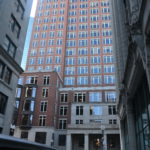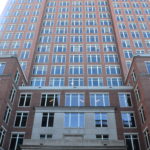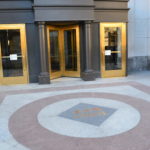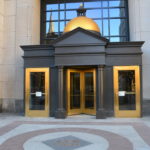
Houghton Mifflin, Historic Offices
Boston, MA 02118 United States
Like many large publishing companies, Houghton Mifflin Harcourt has undergone several iterations since its founding nearly 200 years ago. The publisher’s distinguished author list includes luminaries such as Philip Roth and Ralph Waldo Emerson, and bedrock franchises like the Merriam Webster Unabridged Dictionary, The Lord of the Rings series, and the Curious George children’s books. HMH’s catalog boasts 10 Nobel Prizes, 48 Pulitzers, 15 National Book Awards, and more than 100 Caldecott medal recipients.
Initially established as a printing business by Henry Oscar Houghton in 1832, the company expanded into publishing during the economic panic of the 1850s, when insolvent publishers began giving Houghton their stereotype plates in lieu of payment; the company gradually amassed enough samples to fill a basic catalog. Following the Great Boston Fire of 1872, Houghton again seized an opportunity to purchase the decimated Ticknor & Fields, whose list included leading intellectuals such as Henry David Thoreau, Nathaniel Hawthorne, Mark Twain, and Harriet Beecher Stowe. For a brief span of time in the 1880s and 90s, Houghton also owned and published the Atlantic Monthly, whose offices were nearby on Arlington Street.
During the 20th century, Houghton became one of the first publishing houses to build out its education business, publishing standardized “IQ” tests and prep materials as early as 1916. Houghton’s literature division continued to pursue novels and nonfiction that had mass-market appeal, and the publisher developed a reputation for conservatism, a perception that its editors ascribed to Boston’s puritanical culture, where local authorities frequently banned books they found dangerous or objectionable. In the boom years following World War II, Houghton paid its largest-ever advance for Winston Churchill’s six-volume account of The Second World War, which was later awarded the Nobel Prize in Literature. But shortly afterwards, the publisher famously passed on Julia Child’s Mastering the Art of French Cooking; Child’s book was published the following year, in 1962, by Alfred A. Knopf and became an overnight sensation.
After becoming a publicly traded company in 1967, Houghton focused its catalog of products and services on K-12 educational textbooks, software, and learning technologies, which were consistently growing at more than ten percent annually. The company continues to undergo leadership changes, but is currently formalized as Houghton Mifflin Harcourt (a subsidiary of the French media conglomerate Vivendi).
Upcoming Events
- There were no results found.
Events List Navigation
Events List Navigation
Did You Know?
Certain books were “banned in Boston” at least as far back as 1651, when one William Pynchon wrote a book criticizing Puritanism.




